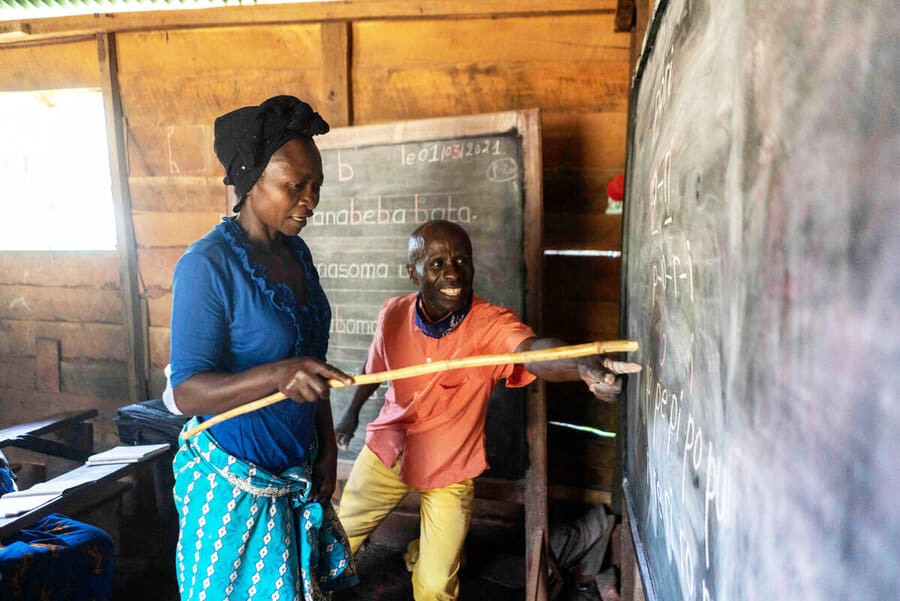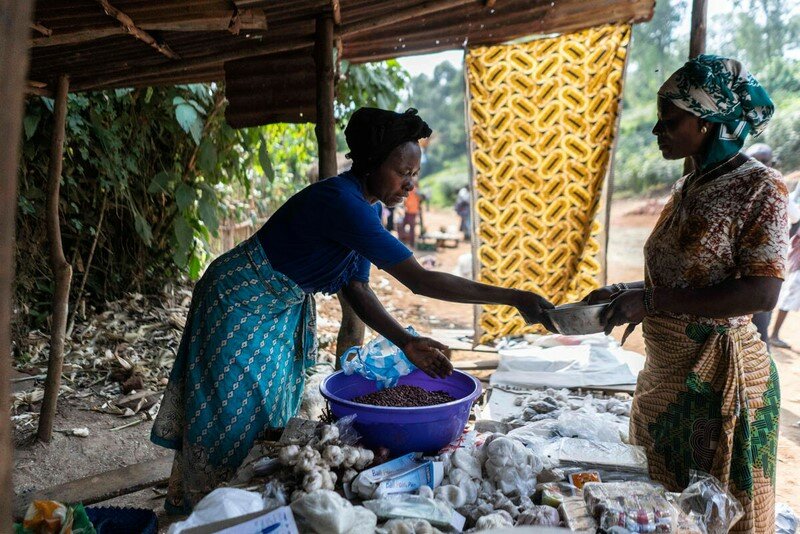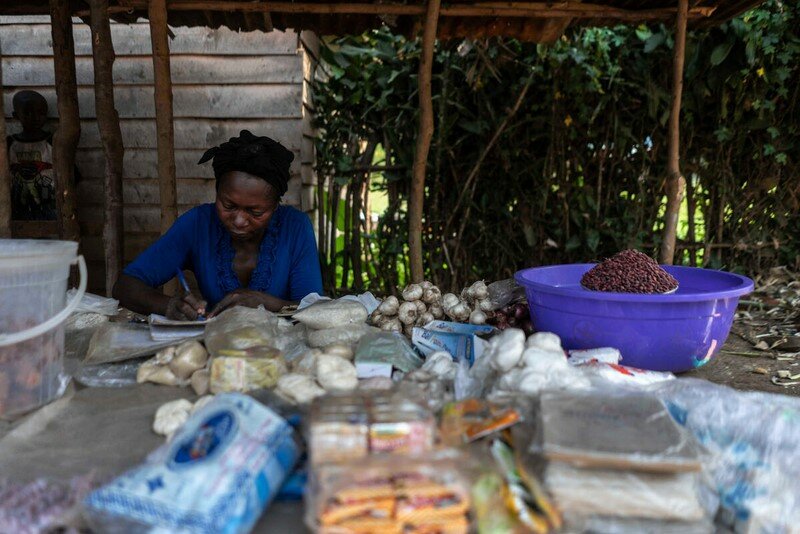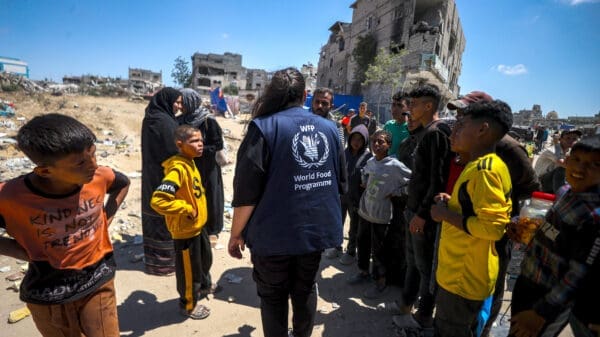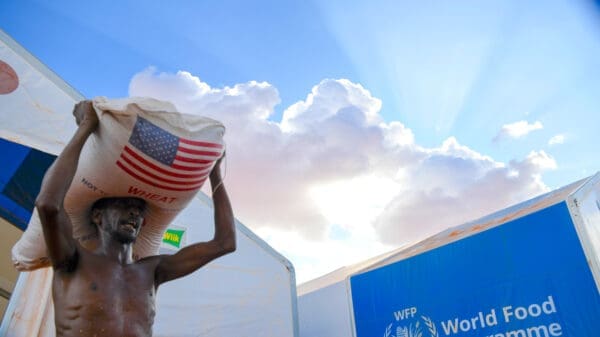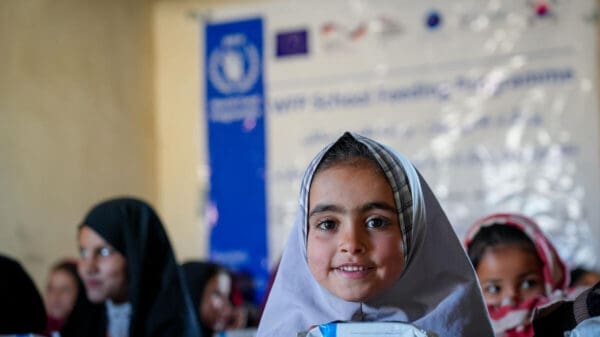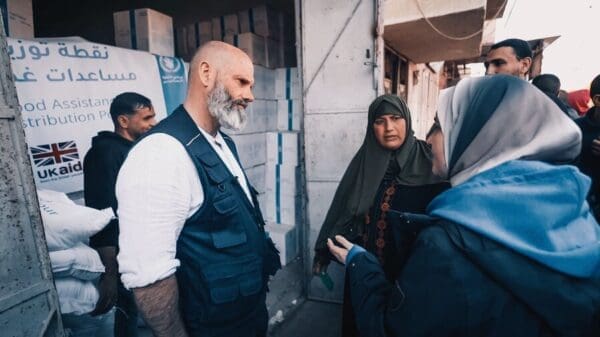“This New Lifestyle Gives Me Nothing but Great Joy”: Literacy Training Sets Women on the Write Track in the DRC
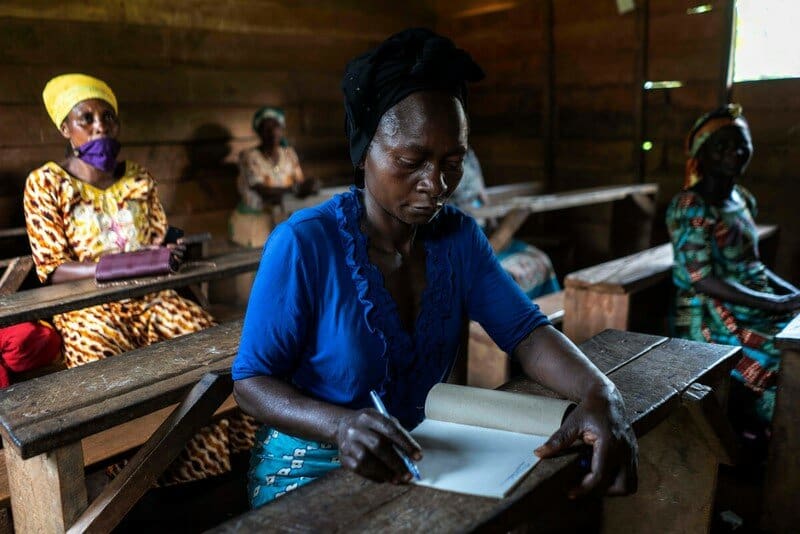
The ability to read and write empowers individuals of all ages to actively participate in their communities and assume leadership roles. For International Literacy Day, meet Furaha: a farmer in the Democratic Republic of Congo (DRC) who created a new life for her family thanks to literacy training through the United Nations World Food Programme (WFP) and the Food and Agriculture Organization.
“I remember how thrilling it was when our teacher asked me to read from the blackboard for the first time,” says Furaha — a participant in a literacy project in Kasheka, South Kivu, in the Democratic Republic of Congo (DRC).
In a country torn apart by years of conflict, families in the DRC have been left with no choice but to skip meals and miss out on opportunities for education. Like many other women in the eastern parts of the DRC, Furaha was unable to attend school.
“I never used to feel at ease in women’s groups,” says Furaha. “Other women saw something special in me but since I could not read and write, I was not considered for a leadership role.”
“I always felt uncomfortable and incomplete when I was around people who had gone through school. I felt like I did not belong there,” she added.
Today, Furaha is among thousands of farmers trained by the United Nations World Food Programme (WFP) and Food and Agriculture Organization in best harvest practices, reading and writing. The community-based program supports small-scale farmers like Furaha to strengthen their food security, business skills and knowledge of sustainable agricultural production.
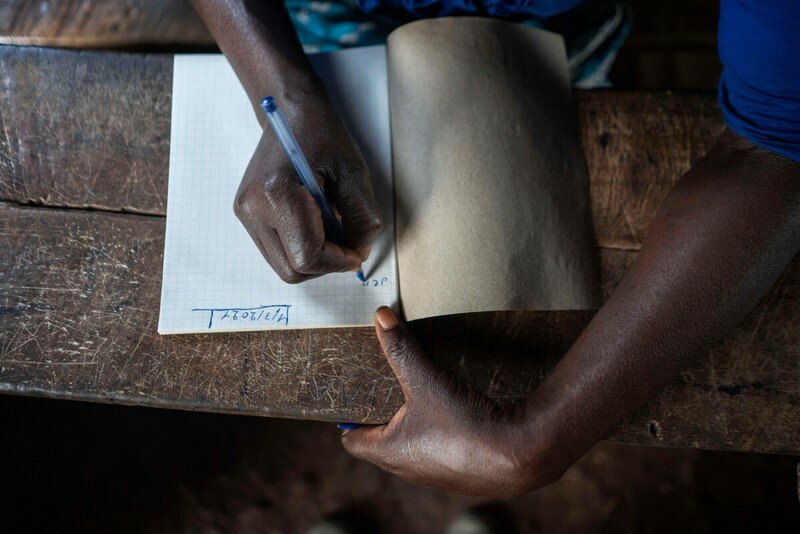
Furaha is among thousands of farmers trained by the U.N. World Food Programme and Food and Agriculture Organization, in techniques that increase harvest yields — but it is her newfound ability to read, write and count that she says she’s most proud of.
Thanks to the joint U.N. World Food Programme and FAO resilience project, Furaha was able to start her own small business selling corn, cassava, beans and other vegetables she grows in her own garden. Her children can now eat twice a day, pick vegetables anytime they like from the garden and “cook and eat as much as they want.”
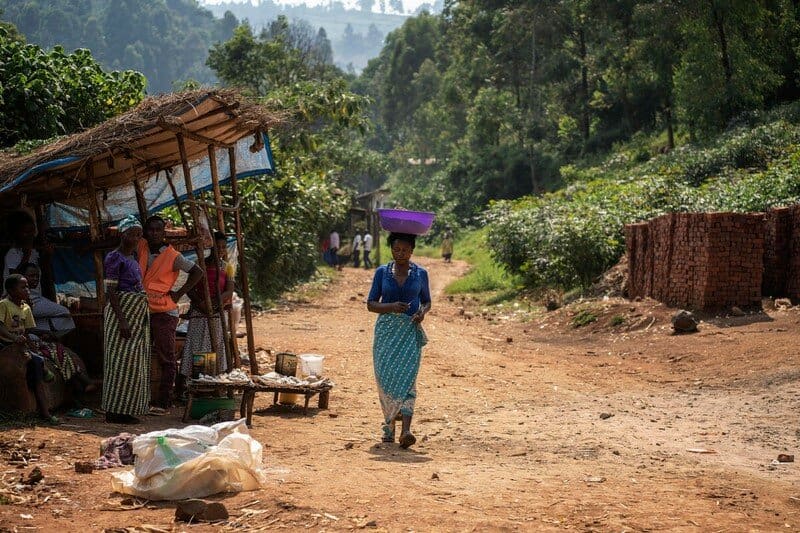
Buoyed by her new skills, Furaha started a shop.
“Ever since I started my business, my children eat in the morning and at lunch as well,” Furaha says. “Today, our children have a diverse choice of food. They can choose to eat vegetables, fish and fruits.”
“This new lifestyle gives me nothing but great joy. I am happy and I no longer worry about where my children’s next meal is going to come from.”
Since 2017, the U.N. World Food Programme and FAO project has supported 600 farmers organizations and around 30,000 families, 60 percent of which are headed by women.
Mariamu Aganze, National Programme Officer in South Kivu says: “The participation of women in decisionmaking roles has really contributed to the social cohesion in the communities. Now we can see that the women are even the presidents of cooperatives, and it has empowered and built confidence in women in the communities that we work in.”
This story originally appeared on WFP’s Stories and was written by Katarzyna Jaskiewicz, Ben Angaundia and Elin Andersson.
The U.N. World Food Programme aims to reach nearly 9 million people in the Democratic Republic of Congo this year, despite an extremely challenging operating environment. To learn more about our work in the DRC, click here.
